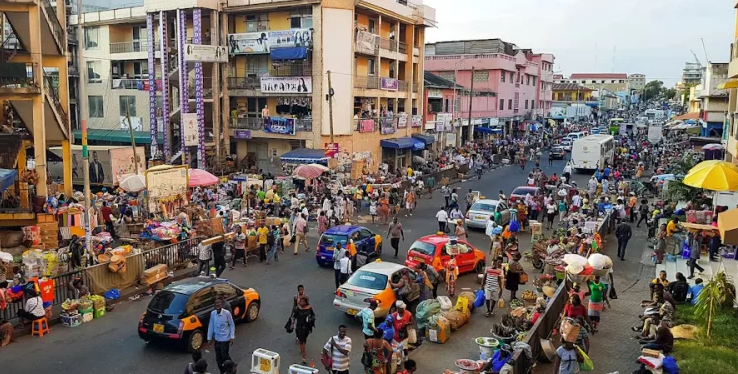Accra, Ghana’s capital city, is facing a looming crisis as it prepares for a significant surge in population growth, leading to heightened congestion by 2030. According to recent data from the Ghana Statistical Service (GSS), the Greater Accra region will experience a substantial increase in population over the next few years.
The GSS’s latest population projections for 2021 to 2050 reveal a notable trend, with Ghana’s total population expected to exceed 33 million by 2024, up from 30.8 million in 2021. This rapid growth is a cause for concern, particularly in the Greater Accra region, which is already struggling with infrastructure and resource constraints.
The region is expected to see a significant increase in school-aged children, with projections indicating a rise to 2.96 million by 2030. This will put additional pressure on the already strained education system, highlighting the need for increased investment in schools and educational resources.
Furthermore, the youth population aged 15 to 24 years is expected to expand by almost twice its size, posing significant challenges for policymakers and stakeholders. This demographic shift will require strategic planning to address the needs of a growing youth population, including employment opportunities, healthcare, and social services.
Deputy Government Statistician, Dr. Faustina Frempong, presented the data and cautioned the government to intervene in the exponential population growth in the Greater Accra region, which covers smaller land spaces. The government must take proactive measures to address the impending crisis, including investing in infrastructure development and social services.
The population projection aims to provide valuable insights into the future demographic landscape, informing policymakers, researchers, and the public about potential changes. This information is critical for tracking the implementation of national, continental, and global development goals, including the Sustainable Development Goals (SDGs).
The GSS’s projections also highlight the need for effective urban planning and management, as Accra’s population growth is expected to put additional pressure on the city’s infrastructure, including housing, transportation, and healthcare services.
To mitigate the effects of population growth, the government must prioritize investment in infrastructure development, including the expansion of public transportation systems, affordable housing, and healthcare facilities.
Moreover, the government must also focus on creating employment opportunities and promoting economic growth to address the needs of a growing population. This will require strategic partnerships with the private sector, international organizations, and civil society to ensure a sustainable and inclusive future for all.
The GSS’s population projections serve as a wake-up call for policymakers and stakeholders to address the impending crisis in Accra. By prioritizing investment in infrastructure development, social services, and economic growth, Ghana can ensure a sustainable future for its growing population.


